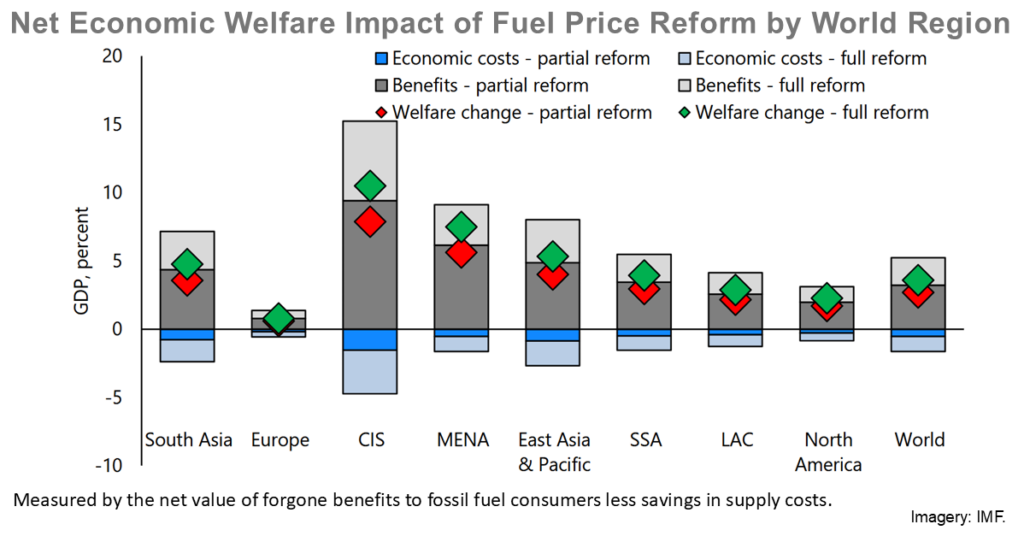Black, Simon, and Antung A. Liu, Ian Parry, Nate Vernon. "IMF Fossil Fuel Subsidies Data: 2023 Update". International Monetary Fund. August 2023. https://www.imf.org/... (Contributed by Gregory Autin).
Gregory Autin | March 11, 2025
Globally, fossil fuel subsidies were $7 trillion in 2022 or 7.1% of GDP. Explicit subsidies – the undercharging for supply costs – have more than doubled since 2020. This equals 18% of the total subsidy, while nearly 60% is due to undercharging for global warming and local air pollution. Differences between efficient prices and retail fuel prices are large, for example, 80% of global coal consumption was priced at below half of its efficient level in 2022. Full fossil fuel price reform would reduce global carbon dioxide emissions (CO₂) to an estimated 43% below baseline levels in 2030 (in keeping with global warming to 1.5-2ᵒC). It could raise revenues worth 3.6% of global GDP and prevent 1.6 million local air pollution deaths per year and lead the transition to clean energy.


